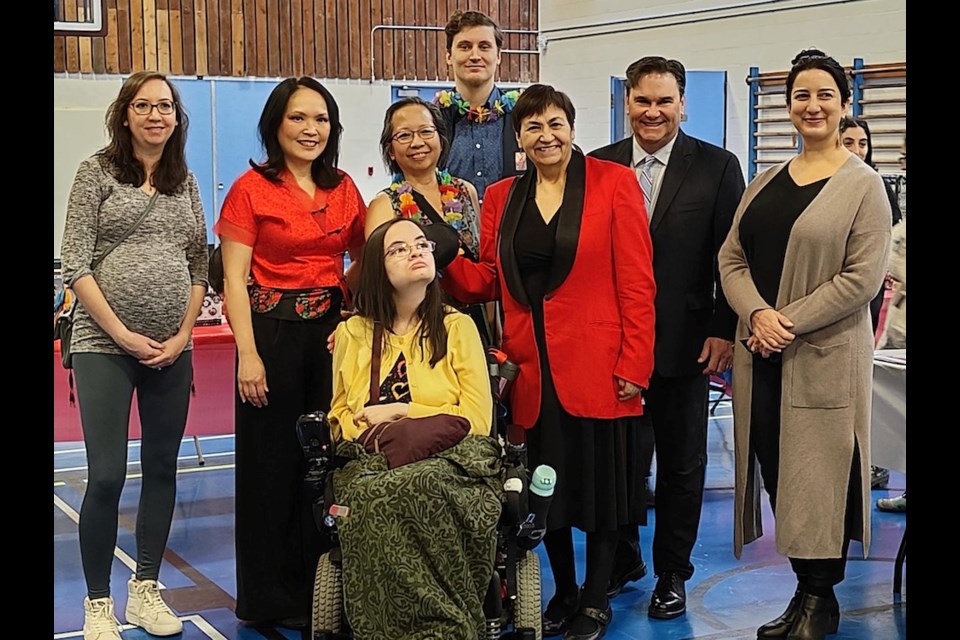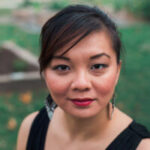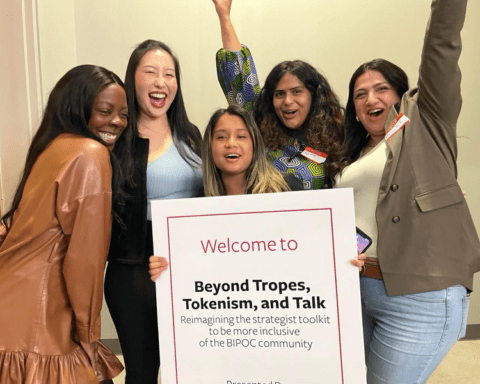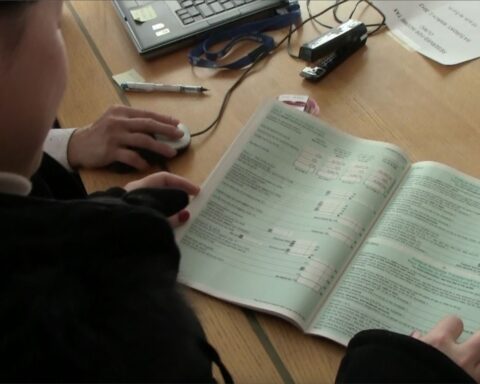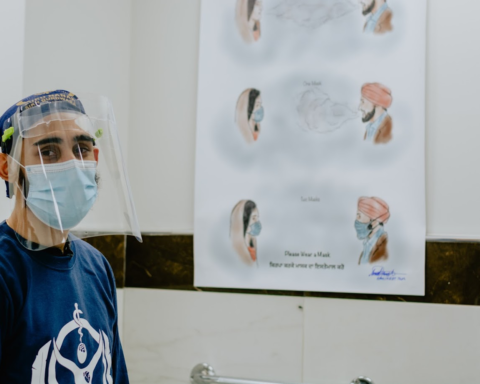“It’s hard to find and make friends,” said 27-year-old walker user Akshay Sachdeva.
Sachdeva attended the Vancouver Community Inclusion Festival, held on Jan. 27, to learn more about available resources and hang out and chat.
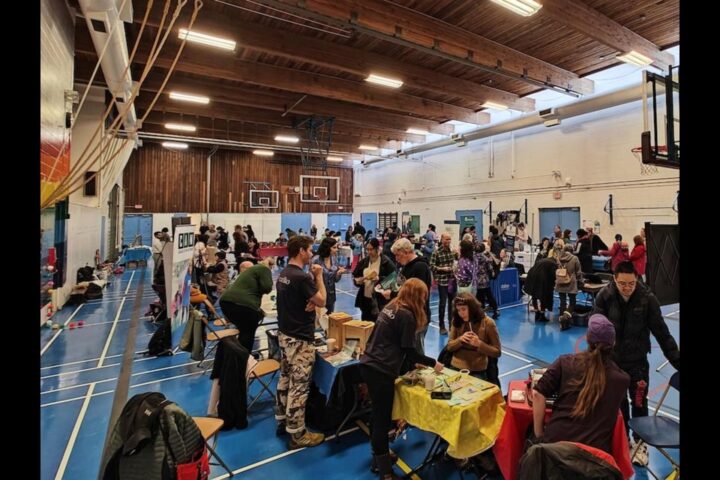
Hosted by Spencer van Vloten of BC Disability and the Community Living BC Vancouver council at Britannia Community Centre, the free event came to fruition after an informal social gathering of facilitators and self-advocates last year. The main purpose of the festival is for local organizations and community members to gather, hang out, and share resources, said van Vloten.
Sachdeva, a member of both BC People First Society and Self Advocates of Semiahmoo, learned that Disability Alliance BC will be hosting a disability law clinic soon. The workshop is important because it means someone will be listening when he’s being discriminated against.
“We’re human beings who want to do the same stuff as you,” said the former program assistant for immigrants with disabilities.
An entrepreneur and wheelchair user with a complex medical background, Sienna Turton said having a caregiver with similar interests makes a huge difference in quality of life.
After learning how to make stress balls at her group home, with a lot of encouragement from her community and relatives, she started selling them.
After matching with her current caregiver, who is interested in fashion design and pattern making, Turton began sewing bibs and other items.
For Turton, her world can be stimulating; she likens the feeling to having a “sunburn 24-7, inside and out.”
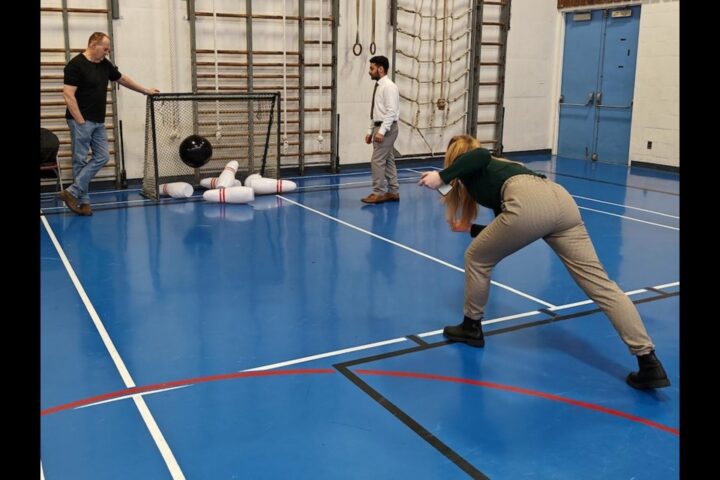
During the festival, Turton leaned into her mom’s arm. The physical touch comforts and anchors her when things are overwhelming, explained Turton’s mom, Norine Chubb.
The growing din of the gym was an encouraging sign to van Vloten. “People are talking to each other.”
However, if it was ever too much for anyone, a quiet room just one hallway away was available.
With games, a “Guess How Many Building Blocks in the Jug” contest, prizes, snacks, and a caricature artist – all for free – he wanted everyone to have fun and enjoy.
Finding ways to advocate for those with invisible disabilities
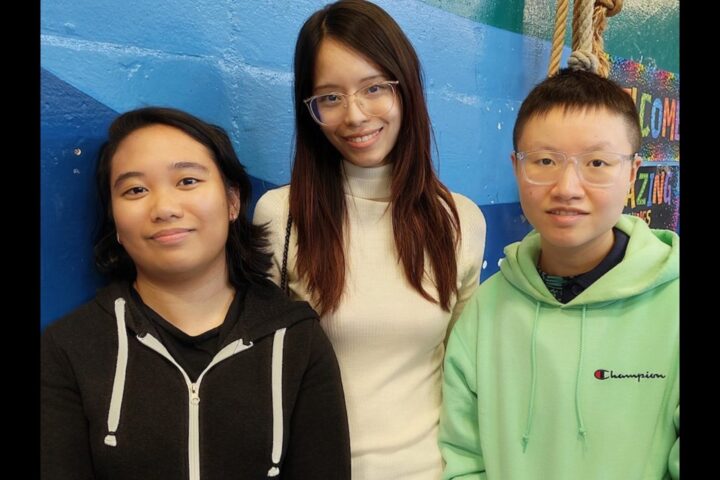
Jacklyn Dicipulo and Danica Tran came out to hang out with their friend Annie Wang, a Community Living BC Community council member.
Friends since high school, they also had other incentives to show up.
Freelance screenwriter Dicipulo, 26, wanted to voice accessibility concerns to those with power and resources and she was told they would be present at this event.
With an invisible disability, she’s still figuring out how to advocate for herself.
She feels the current system is “trying, trying, trying,” and yet nothing is happening. Everything is at a “snail’s pace.”
Currently, she’s writing about her experience in elementary school and wants to create a documentary about it.
“Kids with disabilities are not getting enough help,” explained Dicipulo.
The screenwriter said she also wants to have more conversations about the broad term “accessibility” and what it means.
“The first thought is usually physical disability and wheelchair users.”
There’s more than that, she said, and Dicipulo wants those considerations when it comes to making Vancouver more “accessible.”
Tran, who travelled from Port Coquitlam, wanted to find volunteer opportunities and learn what it takes to be involved with the community.
The 26-year-old has a relative who relies on the services in the city.
‘We all know somebody’ who is disabled and/or neurodiverse
The main message from the politicians who attended is that disability and neurodiversity are more common than the general public understands and “we all know somebody” who is affected.
Vancouver Mount Pleasant MLA Joan Phillip has a sister with dyslexia who became a prolific published writer.
Similarly, Vancouver East MP Jenny Kwan grew up not knowing she had a disabled cousin in England because it was common to never mention disabled family members at the time, but times are changing, said the politician.
Vancouver Kingsway MP Don Davies has a daughter living with a cognitive disability who that same day was training with Special Olympics BC in the weight room next to the gym in which the festival was taking place. He joked her schedule is busier than his and said it’s possible due to the programs in place.
Davies supports self-advocates and those who are living their dreams.
“When you succeed, we all succeed,” said Davies.
Equality doesn’t mean treating everyone the same, B.C.’s human rights commissioner Kasari Govender said. It means respecting differences and removing barriers.
For the disability community, it often means access to work opportunities and community centres.
Govender quoted a March 2023 report on discrimination, saying “true belonging” means having the voice to speak and the space for all voices.
Other participating organizations included Special Olympics BC, Canucks Autism Network, Developmental Disabilities Association, AutismBC, Autism Community Training, UNITI, Pacific Assistance Dogs Society (PADS), posAbilities, Curiko, Nidus and British Columbia Self-Advocate Leadership Network.
_____________________________________________
Deanna Cheng is a Vancouver-based New Canadian Media correspondent currently on a work experience placement with Glacier Media. This article was originally published on Vancouver Is Awesome.
Deanna Cheng is a freelance journalist who has been published in various publications such as Vancouver Courier and Asian Pacific Post. She often covers culture, intersectionality and Vancouver.

